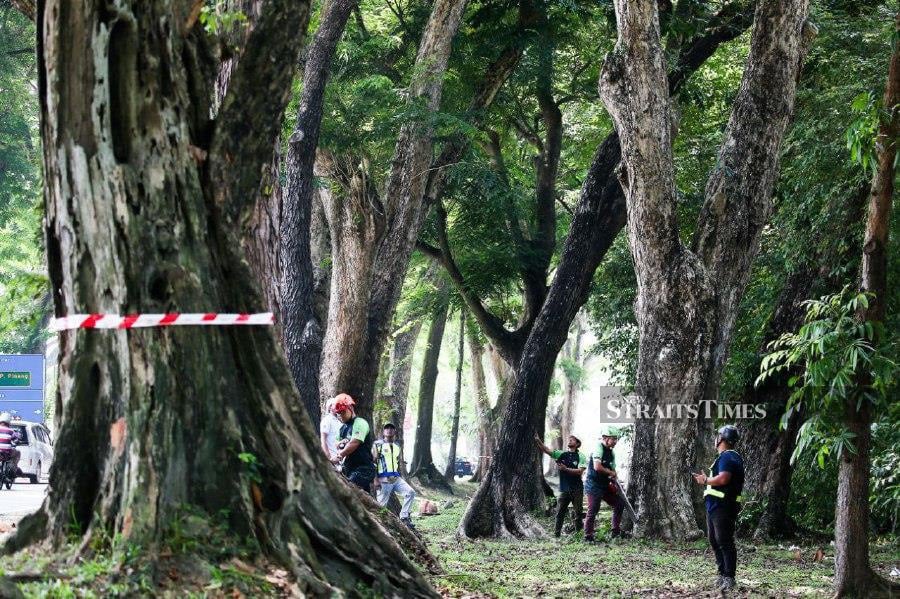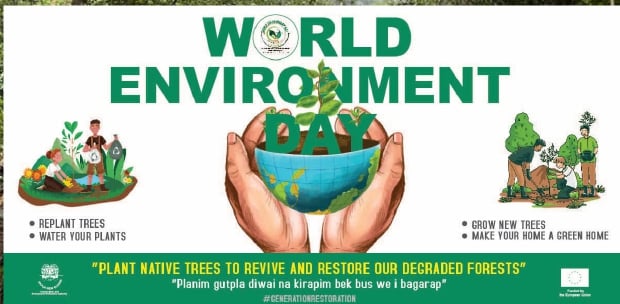AS the World Environment Day will be observed globally on June 5, our prime minister's recent call "for every tree that needs to be cut down, 100 new trees must be planted" is timely and shows his profound concern in preserving the environment for now and our future wellbeing.
This firm mandate is not just applicable to any of our local authorities but to all of us too.
The health of our environment is intrinsically linked to the quality of our lives and the longevity of our planet. A healthy environment also supports biodiversity, which is vital for ecosystem balance and resilience.
By preserving the environment, we not only protect these resources but also mitigate the effects of climate change and enhance the quality of life for present and future generations.
As the global population increases and technological advancements accelerate, the pressure on natural resources and ecosystems intensifies. Preserving the environment is no longer a choice but a necessity for ensuring a sustainable and healthy future for all living beings.
The climate change and its devastating effect we are witnessing currently can no longer be taken lightly. The onus is on us. We should take collective responsibility to protect nature as it will respond and react to how we treat it.
This is the universal law that we should heed seriously by adopting solid and practical measures.
Climate change, driven by greenhouse gas emissions from human activities, is one of the most pressing issues. Rising global temperatures lead to extreme weather events, sea-level rise, and disruptions in agricultural productivity, affecting millions of lives worldwide.
Deforestation, habitat destruction, biodiversity loss and rapid urbanisation are among the critical concerns. These challenges not only disrupt ecosystems but also compromise the services they provide, such as carbon reduction and decreasing soil fertility.
Pollution is another major challenge, with air, water, and soil contamination posing significant health risks to humans and wildlife. Plastic pollution particularly has reached alarming levels, with millions of tonnes of plastic waste entering the oceans each year, harming marine life and ecosystems.
Addressing these challenges requires collective action from government, individuals, communities, and whole of nation.
Some of the practical steps we may consider in preserving our environment include:
l Reduce, Reuse, Recycle: 3Rs is a universal concept, simple yet effective way to reduce environmental impact. By consuming less, reusing products, and recycling materials, we can decrease the amount of waste that ends up in landfills, rivers and oceans.
l Conserve Energy: Using energy-efficient devices, switching to renewable energy sources, and adopting sustainable transportation.
l Protect Natural Habitats: Supporting conservation efforts, such as reforestation projects and the establishment of protected areas, helps preserve biodiversity and maintain ecosystem services.
l Minimise Water Usage: Conserve water by fixing leaks and unnecessary wastage, adopting rainwater harvesting and sustainable agricultural practices may protect this precious resource and reduce the strain on freshwater ecosystems.
l Educate, Awareness and Attitude: Raising awareness about environmental issues and supporting for stronger environmental regulations and policies can lead to more significant collective action. Educating all strata of society starting from early childhood about the importance of environmental governance should be emphasized for ensuring a continued commitment to preservation. For this, change in attitude is paramount.
l Community Gardening: Local authorities should continuously support and monitor residential areas for community gardening to boost greenery.
l In essence, preserving the environment is fundamentally essential for ensuring a better quality of life now and in the future.
The prime minister's foresight and wisdom in directing for more tree planting are commendable and should be implemented without any delay.
By addressing the current challenges and adopting sustainable practices, we can protect our resources, support biodiversity, and mitigate the effects of climate change. It is a shared responsibility that requires concerted effort from all sections of society.
Through mindful actions and a commitment to sustainability, we can create a healthier, more resilient nation for ourselves and future generations.
The writer is senior research fellow, National Institute of Public Administration (INTAN). He can be reached at [email protected]






